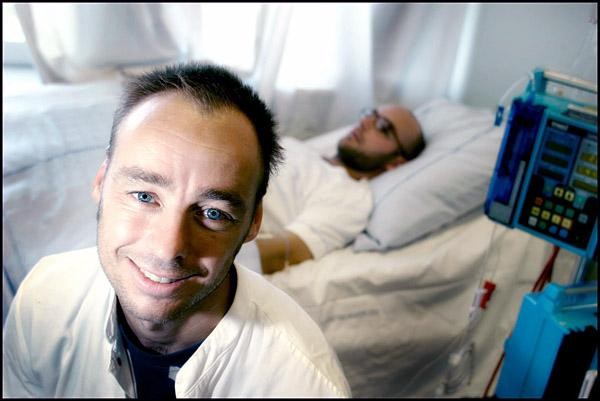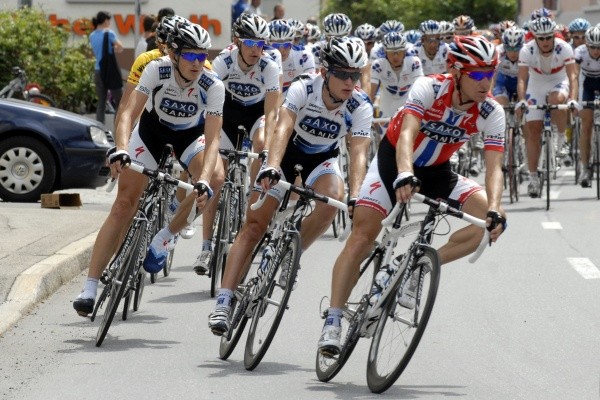Saxo Bank ends independent testing programme
Danish team express confidence in UCI's biological passport


Saxo Bank has officially announced the end of its independent anti-doping programme with Danish company Clearidium and its head, Dr. Rasmus Damsgaard. The three-year cooperation has come to a close because of the potential conflict of interest posed by Clearidium's forthcoming involvement with the International Cycling Union's (UCI) blood passport programme.
Clearidium has conducted internal controls for Saxo Bank since 2006. The team's riders have been subject to a 12 blood profiles, 4 steroid profiles and 4 EPO profiles per season. With Damsgaard and his company to partner with the UCI from next season, the programme can no longer act independently.
The team will now rely on the UCI's biological passport to ensure its riders are competing clean, a system in which Saxo Bank team owner Bjarne Riis expressed his confidence.
"We have been extremely glad for the partnership with Rasmus Damsgaard and we are very proud of the results we accomplished together" said Riis. "We started our work back in the autumn of 2006 and the result was an intelligent anti-doping programme, which today is the foundation of the UCI biological passport. We are therefore confident that the anti-doping programme implemented by the UCI will be of outstanding quality."
The Saxo Bank announcement came a week after RadioShack's confirmation that it would not continue with Damsgaard's company, which had been employed by Astana during Johan Bruyneel's tenure as manager. In a boost for the UCI, RadioShack, too, acknowledged the biological passport programme as a being strong enough to negate the need for an internal anti-doping system.
Damsgaard expressed his appreciation and pride in the three-year relationship with Saxo Bank. "Without Bjarne's vision and determination I'm not sure that the fight against doping would be as successful as it is today," he said.
"Bjarne and I first talked together in August 2006 and we agreed to develop the most ambitious anti-doping programme ever. Today many of the components from the programme are incorporated in the biological passport of the UCI and that is for me a great success."
Get The Leadout Newsletter
The latest race content, interviews, features, reviews and expert buying guides, direct to your inbox!
The UCI's biological passport system began at the start of 2008. The UCI's anti-doping department told Cyclingnews this week that the programme played a role in uncovering eight doping positives in 2009, a result of targeted controls conducted after irregular blood values were detected.